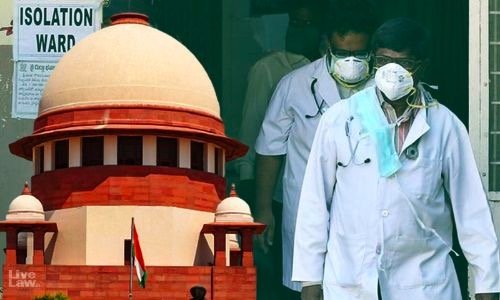In a bid for equitable educational opportunities, a group of MBBS aspirants hailing from Andhra Pradesh has taken their concerns to the highest judicial echelons. Their grievance? The 100% reservation for local candidates under the ‘Competent Authority Quota’ in Telangana medical institutions. This move has not only ignited a legal battle but has also sparked a conversation about the nuances of state-wise reservation policies and their impact on aspiring medical professionals.
A Confluence of Aspirations and Reservations
The landscape of medical education in India is complex, with multiple factors at play, including reservation policies that aim to address historical disadvantages and promote representation from marginalized communities. The case in question centers around the ‘Competent Authority Quota,’ which has granted 100% reservation to local candidates in Telangana medical colleges. While the intention behind such policies is to ensure access for students from the state, the implementation of an absolute reservation policy has now become a subject of contention.

The Plight of the MBBS Aspirants
Aspirants from Andhra Pradesh, aspiring to pursue medical education in neighboring Telangana, have found themselves caught in a web of uncertainty due to the 100% reservation policy. This policy, though crafted with the objective of prioritizing local candidates, has inadvertently posed challenges for those students who might possess meritorious records and aspirations to contribute to the medical field in the region. The aspirants argue that while a degree of reservation is essential, a blanket 100% reservation poses a threat to meritocracy and the overall quality of medical education.
The Legal Battle: Striving for Equality
The MBBS aspirants’ move to approach the Supreme Court signifies their commitment to uphold principles of fairness and equal opportunity. The legal battle highlights the delicate balance between state autonomy and the rights of individuals seeking access to quality education across state borders. The apex court’s verdict in this matter could have far-reaching implications not only for the involved states but also for the broader discourse on reservation policies in professional education.
Beyond Borders: Broader Implications
The conflict over the ‘Competent Authority Quota’ serves as a microcosm of the larger debate surrounding reservation policies in India. The challenge lies in designing policies that uplift marginalized sections of society while also nurturing an environment conducive to excellence and competition. Striking this equilibrium requires a nuanced approach that takes into account regional dynamics, educational standards, and the aspirations of the student community at large.
A Call for Dialogue and Deliberation
As the legal proceedings unfold, the case invites stakeholders to engage in meaningful dialogue and deliberation. It prompts us to collectively reflect on the role of reservation policies in shaping the educational landscape, the parameters for fairness, and the benchmarks for excellence. Ensuring that medical education remains a domain where deserving candidates from all corners of the country can excel is a responsibility that demands careful consideration.
Shaping the Future of Medical Education
The case presented by the MBBS aspirants underscores the need for continuous evolution in reservation policies that take into account the evolving socio-economic landscape and the aspirations of the youth. The outcome of this legal battle will influence not only the trajectory of medical education but will also contribute to the broader discourse on equitable access to professional courses.
In a nation that prides itself on diversity and unity, the challenge lies in crafting policies that uphold both principles. While reservation policies have been instrumental in extending opportunities to marginalized sections, they also need to be calibrated to ensure that excellence and meritocracy remain the pillars of professional education.
Case Details
Chinnam Sai Yasaswini & Ors. v. Union of India & Ors. | Writ Petition (Civil) No. ___ of 2023



































